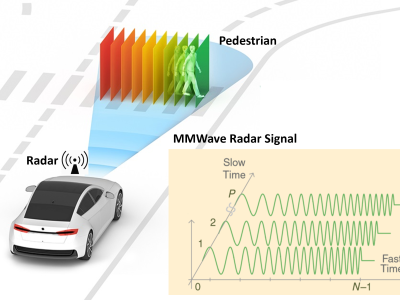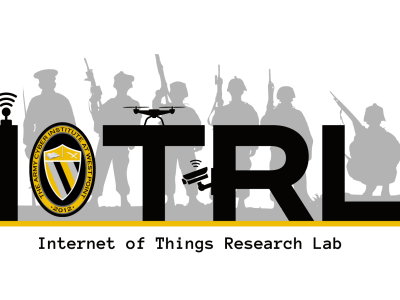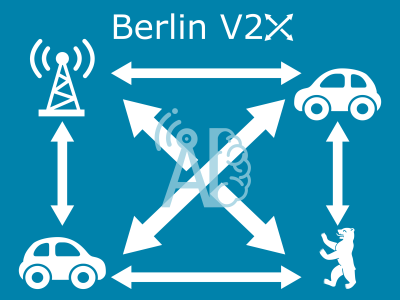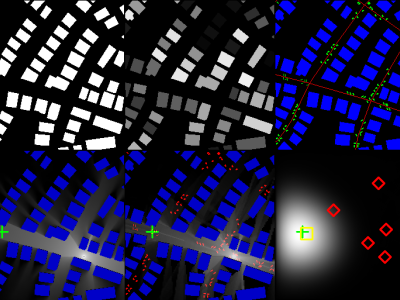CRAWDAD oviedo/asturies-er

- Citation Author(s):
-
Sergio Cabrero (Centrum Wiskunde & Informatica)Roberto Garcia (Universidad de Oviedo)Xabiel G. García (Universidad de Oviedo)David Melendi (Universidad de Oviedo)
- Submitted by:
- CRAWDAD Team
- Last updated:
- DOI:
- 10.15783/C7302B
- Data Format:
 268 views
268 views
- Categories:
Abstract
This dataset contains mobility and connectivity traces extracted from GPS traces collected from the regional Fire Department of Asturias, Spain.
The original data source is one year of GPS traces extracted from a Geographical Information System (GIS). The traces were generated by GPS devices embedded mainly in cars and trucks, but also in a helicopter and a few personal radios. A total of 229 devices reported 19,462,339 locations. A new location is reported with an interval of approximately 30 seconds when the GPS device detects movement. To convert GPS traces into ONE connectivity traces, we have assumed circular communication ranges of 10, 50 and 200 meters. There is a connection between nodes that are closer than the given range. For simplicity, we assume that the position of a device is always the last position reported. Our analysis shows several important findings for the design of network protocols from the physical to the application layer. The networks examined are heterogeneous in the contact duration and the number of nodes contacted (degree centrality). In addition, they are sparse and partitioned, but delay- tolerant routes connecting these partitions exist. Finally, there are patterns in the connection between nodes that can ease the discovery of these routes and the deployment of delay-tolerant services.
date/time of measurement start: 2011-10-01
date/time of measurement end: 2012-09-30
data collection methodology: The original GPS traces are stored in Geographical Information System (GIS) database owned by the fire department.
limitation: We assume circular communication ranges and instantaneous movement between two consecutive device positions.
Traceset
oviedo/asturies-er/asturies-er-1year
This traceset contains three ONE connectivity traces from one year of GPS traces
- file: asturies-er-1year-10m.one.gz, asturies-er-1year-50m.one.gz, asturies-er-1year-200m.one.gz, asturies-er-1year-mobility.csv.gz
- measurement purpose: ARRAY(0x270b3b8)
- change: asturies-er-1year-mobility trace added
oviedo/asturies-er/asturies-er-1year Trace
asturies-er-1year-10m: This trace contains ONE connectivity traces for one year assuming a 10 meters communication range. These connectivity traces are for the ONE simulator. Connectivity is generated from the GPS positions as follows: calculate distance from the last registered location of each device and compare it with range. Every new position triggers new comparisons.
- format: ONE connectivity traces. See https://akeranen.github.io/the-one/
asturies-er-1year-50m: This trace contains ONE connectivity traces for one year assuming a 50 meters communication range. These connectivity traces are for the ONE simulator. Connectivity is generated from the GPS positions as follows: calculate distance from the last registered location of each device and compare it with range. Every new position triggers new comparisons. In this trace connectivity is assumed whenever two positions are within 50m of each other.
- format: ONE connectivity traces. See https://akeranen.github.io/the-one/
- asturies-er-1year-200m: This trace contains ONE connectivity traces for one year assuming a 200 meters communication range. These connectivity traces are for the ONE simulator. Connectivity is generated from the GPS positions as follows: calculate distance from the last registered location of each device and compare it with range. Every new position triggers new comparisons. In this trace connectivity is assumed whenever two positions are within 200m of each other.
- format: ONE connectivity traces. See https://akeranen.github.io/the-one/
- asturies-er-1year-mobility: This trace contains mobility traces. These mobility traces are generated by setting the first GPS location in the original database as reference (0,0). Latitude and Longitude are expressed in meters.
- format: Timestamp(seconds) NodeId Latitude(meters) Longitude(meters)
Instructions:
The files in this directory are a CRAWDAD dataset hosted by IEEE DataPort.
About CRAWDAD: the Community Resource for Archiving Wireless Data At Dartmouth is a data resource for the research community interested in wireless networks and mobile computing.
CRAWDAD was founded at Dartmouth College in 2004, led by Tristan Henderson, David Kotz, and Chris McDonald. CRAWDAD datasets are hosted by IEEE DataPort as of November 2022.
Note: Please use the Data in an ethical and responsible way with the aim of doing no harm to any person or entity for the benefit of society at large. Please respect the privacy of any human subjects whose wireless-network activity is captured by the Data and comply with all applicable laws, including without limitation such applicable laws pertaining to the protection of personal information, security of data, and data breaches. Please do not apply, adapt or develop algorithms for the extraction of the true identity of users and other information of a personal nature, which might constitute personally identifiable information or protected health information under any such applicable laws. Do not publish or otherwise disclose to any other person or entity any information that constitutes personally identifiable information or protected health information under any such applicable laws derived from the Data through manual or automated techniques.
Please acknowledge the source of the Data in any publications or presentations reporting use of this Data.
Citation:
Sergio Cabrero, Roberto Garcia, Xabiel G. García, David Melendi, oviedo/asturies-er, https://doi.org/10.15783/C7302B , Date: 20160808
















